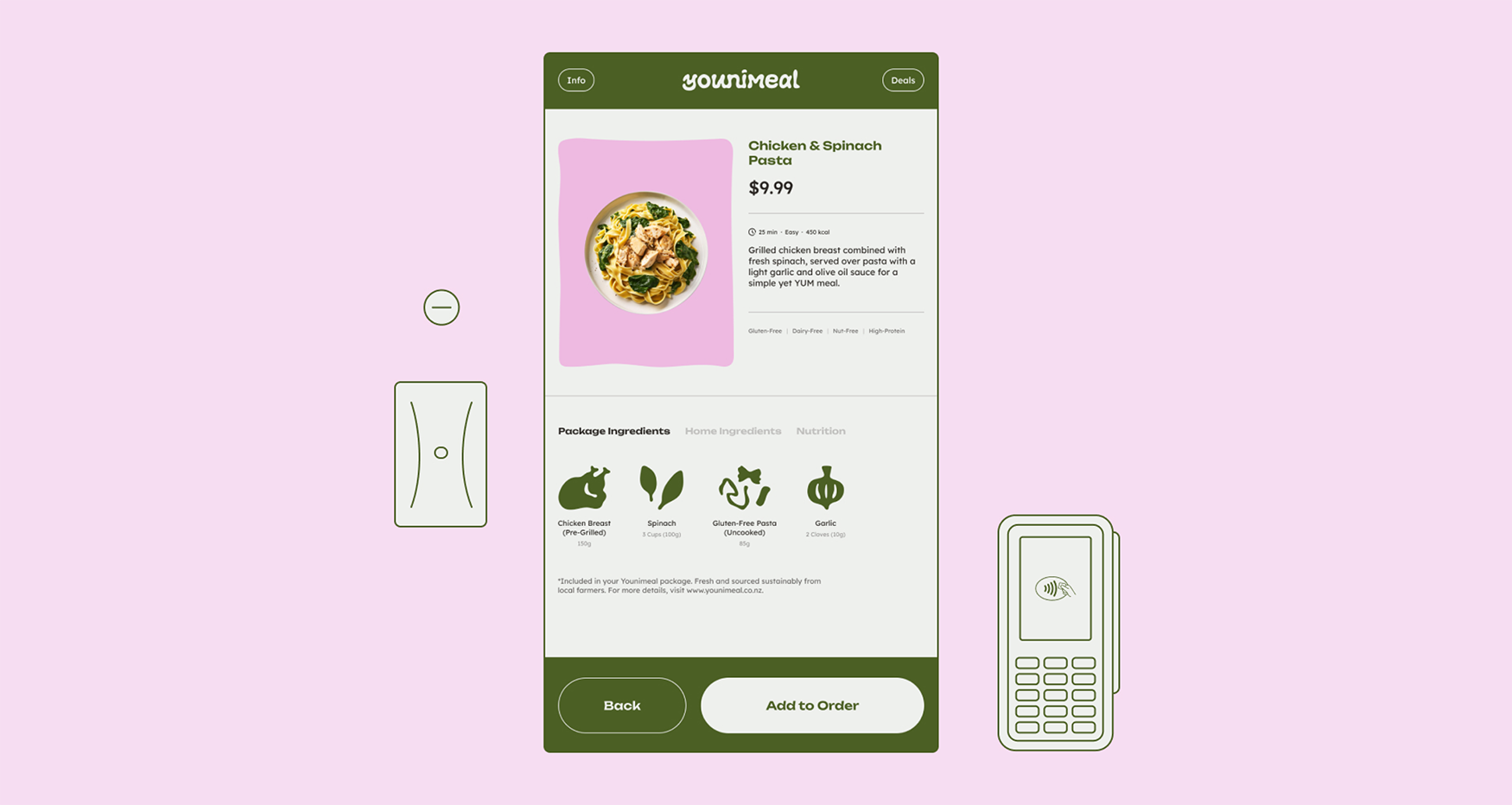
An on-the-go vending solution for uni students to easily access cheap and healthy meal preps.
Younimeal was created in response to a brief calling for “a new commercial enterprise in New Zealand, addressing a current, real-world problem.”
In alignment with the brief, I focused on Kiwi university students’ struggles with food security; a problem driven by rising costs and time pressures.
Amidst academic pressures, financial constraints and the rise in cost of living crisis, many students struggle to maintain consistent, healthy eating habits.
This often leads to reliance on fast food or skipping meals altogether, compromising both physical and mental well-being.
Through research, I uncovered alarming insights and statistics that revealed these key barriers students face in accessing healthy food, shaping the very essence of this project.


By leveraging innovative vending technology, popularised in continents like America and Asia as well as rethinking under-utilised indoor campus spaces, Younimeal is perfectly designed for busy student lifestyles.
Placed throughout indoor campus spaces, the machines provide flexible access to fresh meal preps during campus opening hours, offering a self-service solution with weekly rotating menus.

Allowing users to set their dietary preferences for a more personalised shopping experience and ability to adjust at any time using the bottom bar.
Providing users with quick access to kiosk information and special bundle deals available for multiple orders, helping students save money without sacrificing nutrition.
Users can browse a wide range of meal prep options, viewing each item’s description, ingredients and full nutritional information to make informed choices.
Enabling users to easily add or remove items from their cart with familiar interactions and complete their purchase using their preferred contactless payment method.
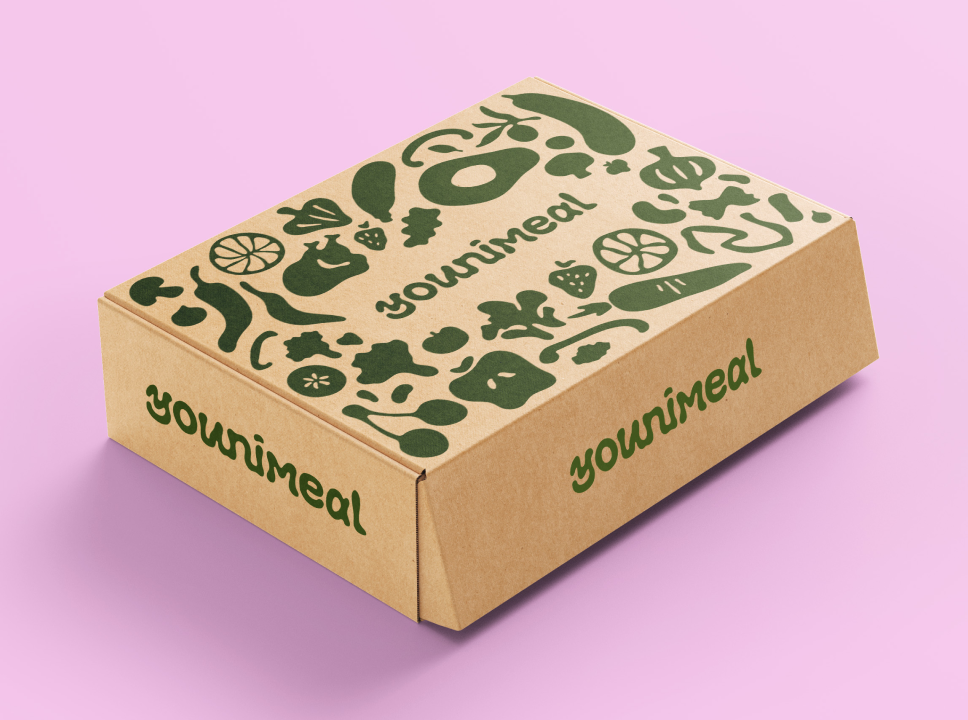
Curated with fresh ingredients, customers can collect their meal prep boxes from the machine’s automatic open-close compartments upon payment.

Inside also includes a double-sided instruction manual, designed for easy, step-by-step preparation, making healthy eating effortless for busy students.
I began this project with white paper research into various problems in Aotearoa. As I explored these topics, however, I became increasingly drawn to the issue of healthy food security.
Despite the abundance of food wasted every year in New Zealand, I found that high living costs and supermarket duopolies make nutritious options unaffordable for many, especially university students juggling financial and time pressures.
As a student myself, I saw parts of this struggle reflected around me, where I heard stories of friends hesitant to eat healthy in order to save money. This made the issue feel more personal and appropriate to investigate.
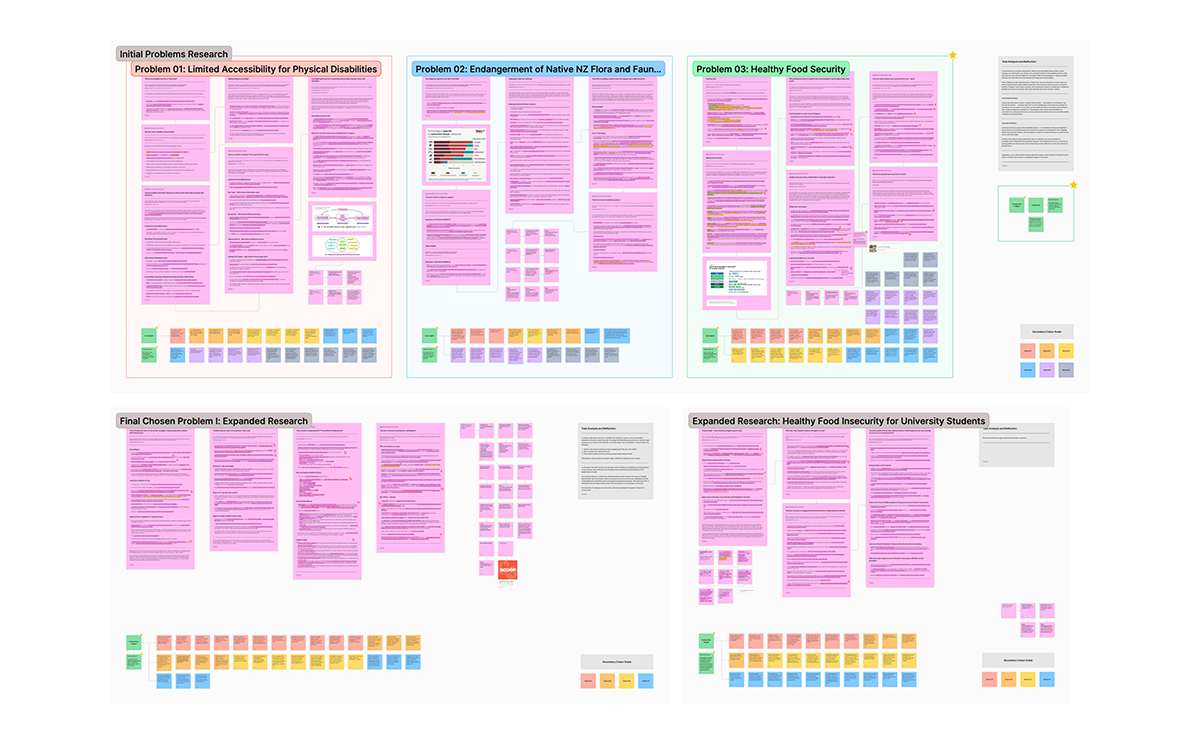

To deepen my understanding of real-life habits, thoughts and experiences of university students in regards to healthy food security, I also conducted a survey with seven respondents.
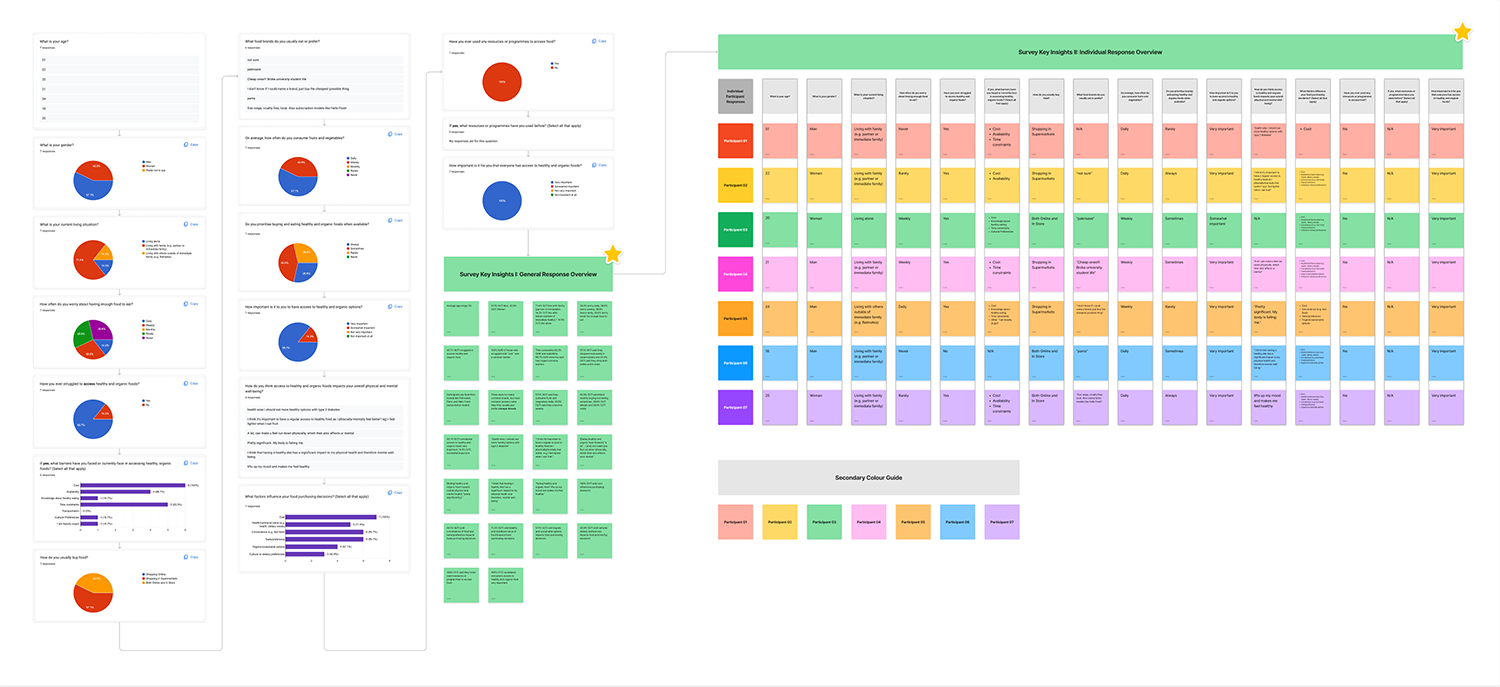

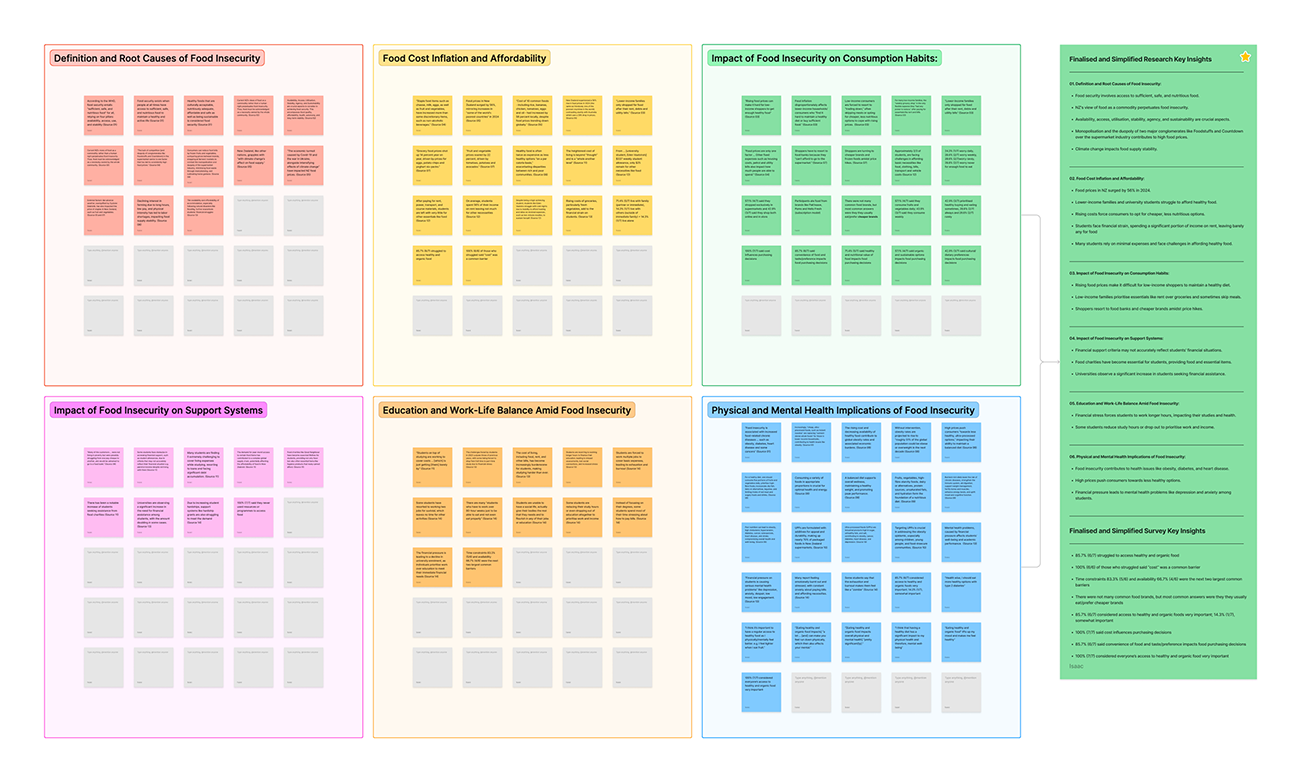
Through previous analysis of my organised research, I further distilled the key themes into core user challenges and needs. This process allowed me to define who exactly I was designing for.

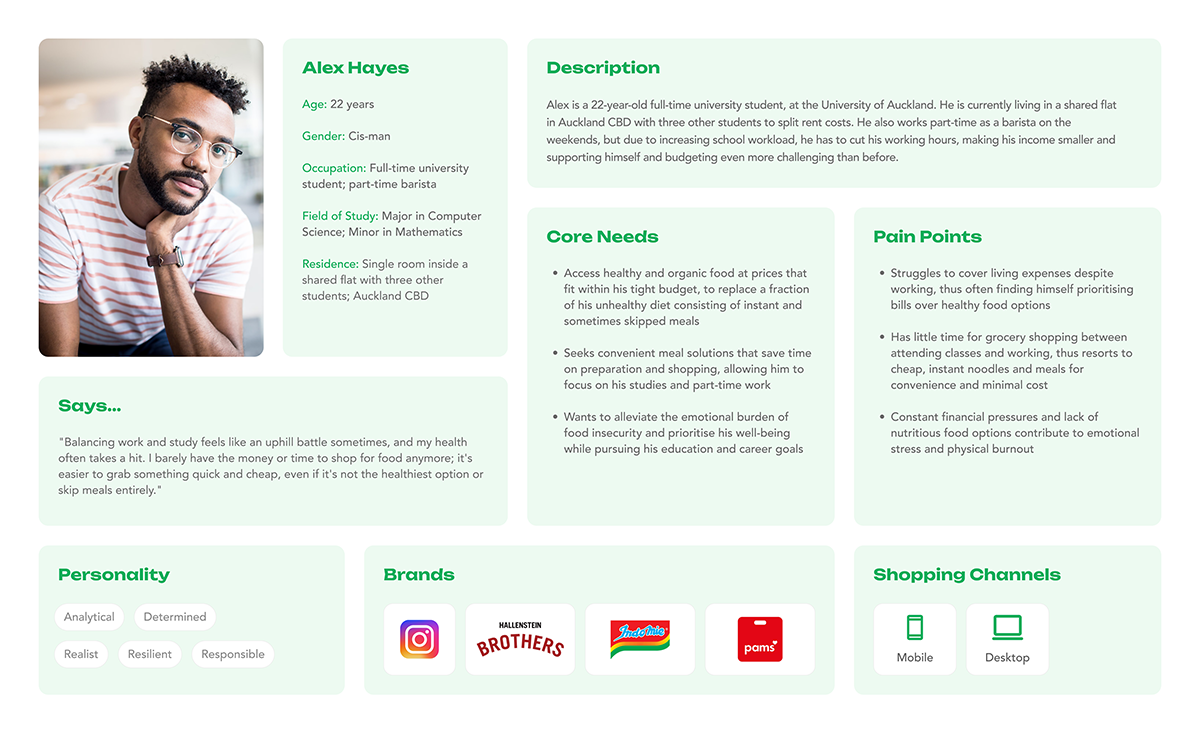
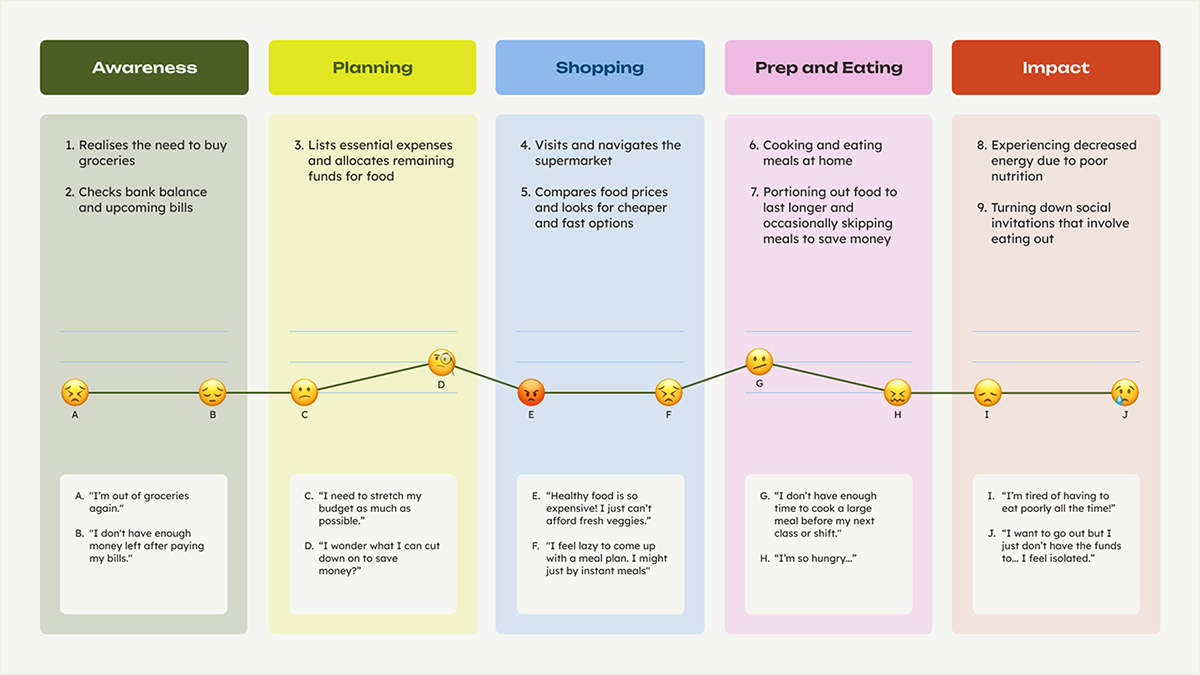
Having identified user habits, challenges and needs, I explored potential solutions. I aimed to be as creative as possible while staying grounded in feasibility, drawing inspiration from real-life examples that could inform and support my ideas!
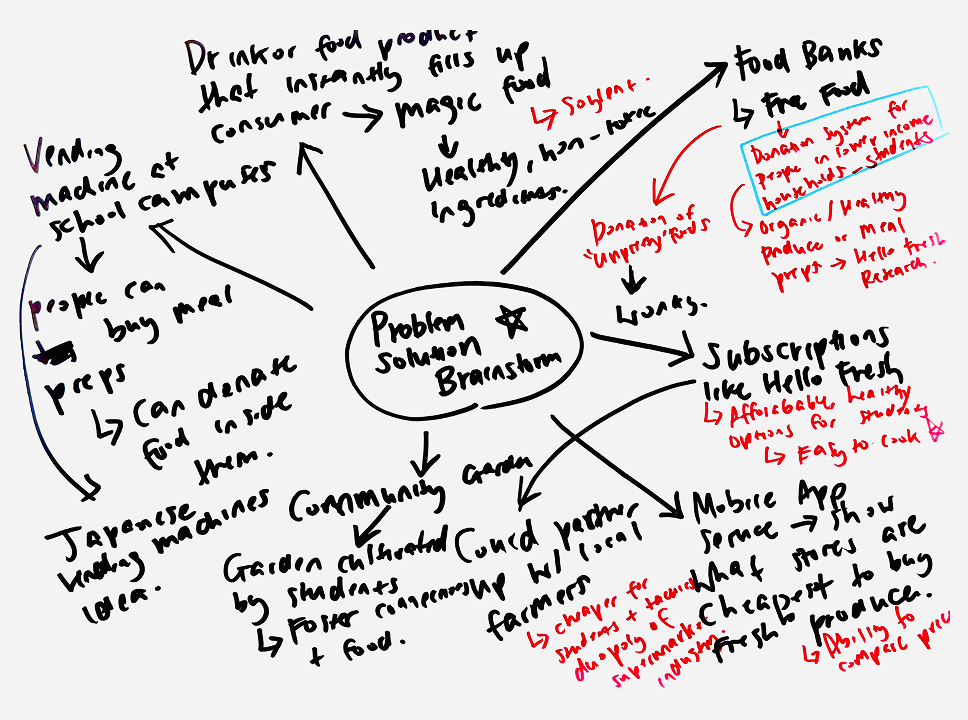
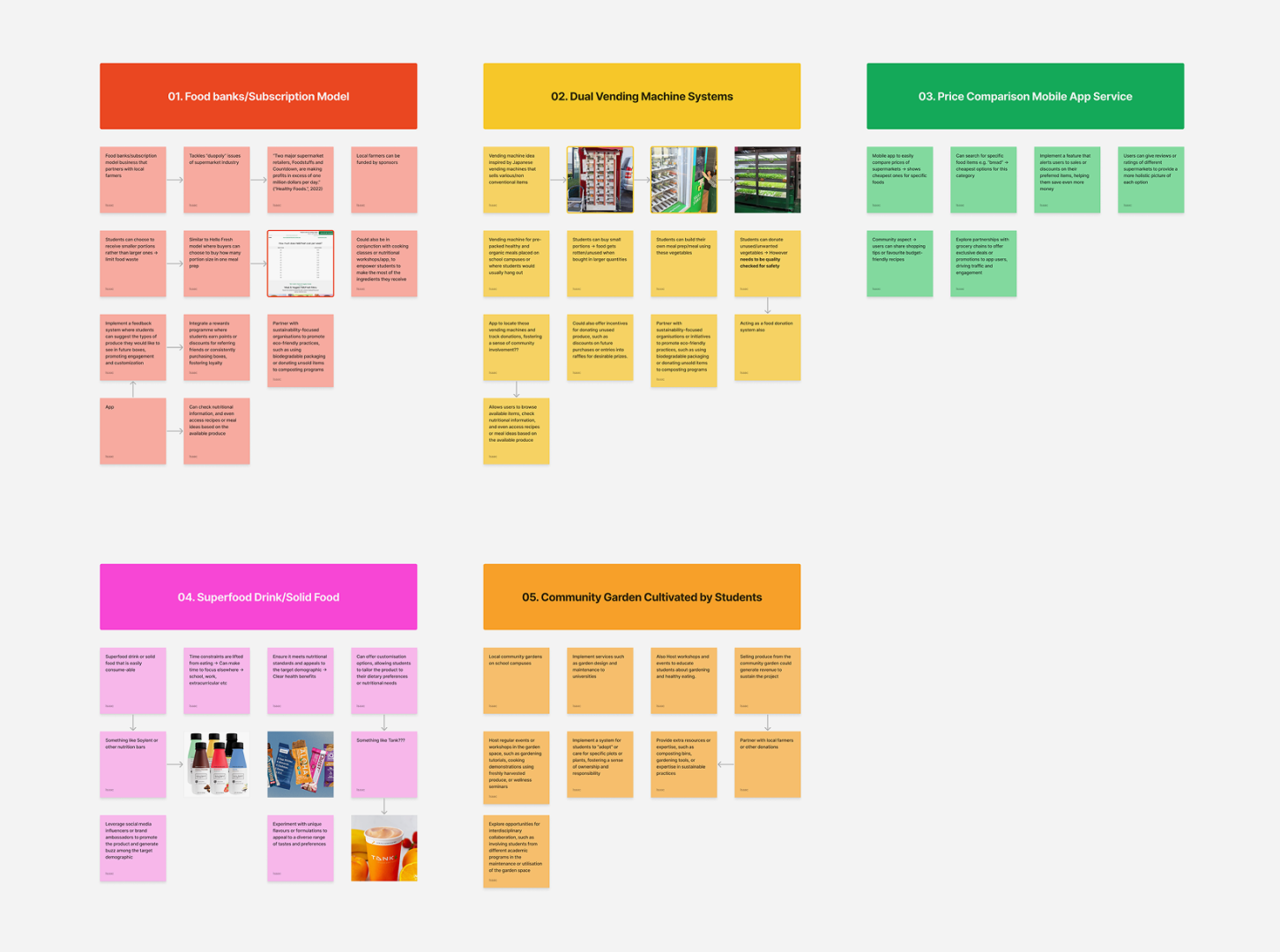
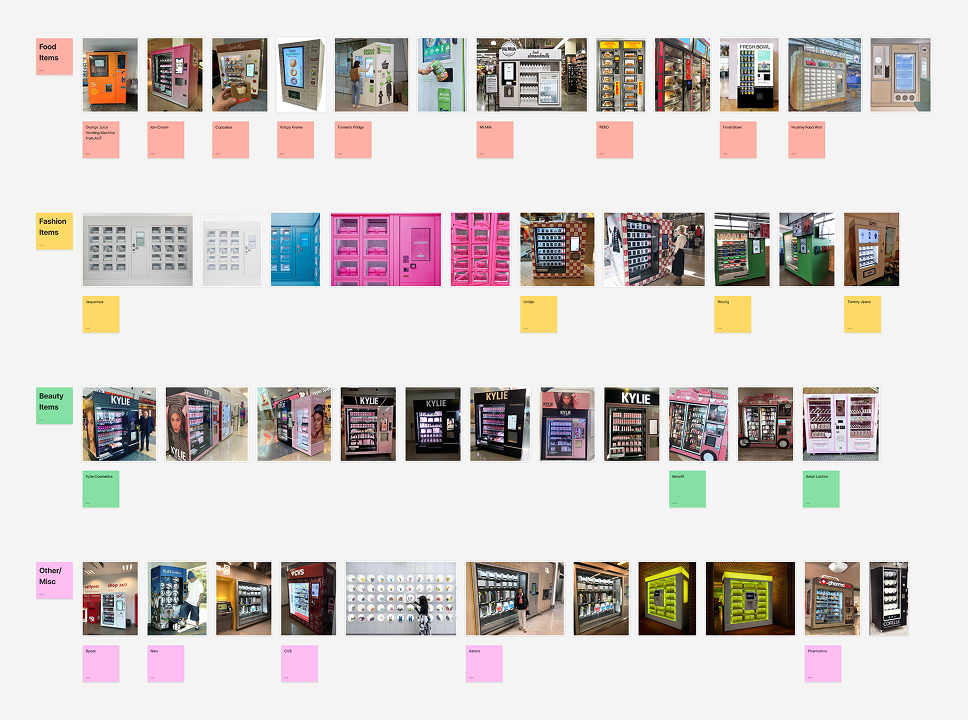
My chosen solution combines traditional meal preps with vending machines. They will offer quick, affordable and healthy options for students, removing the need for grocery shopping or planning during busy schedules.
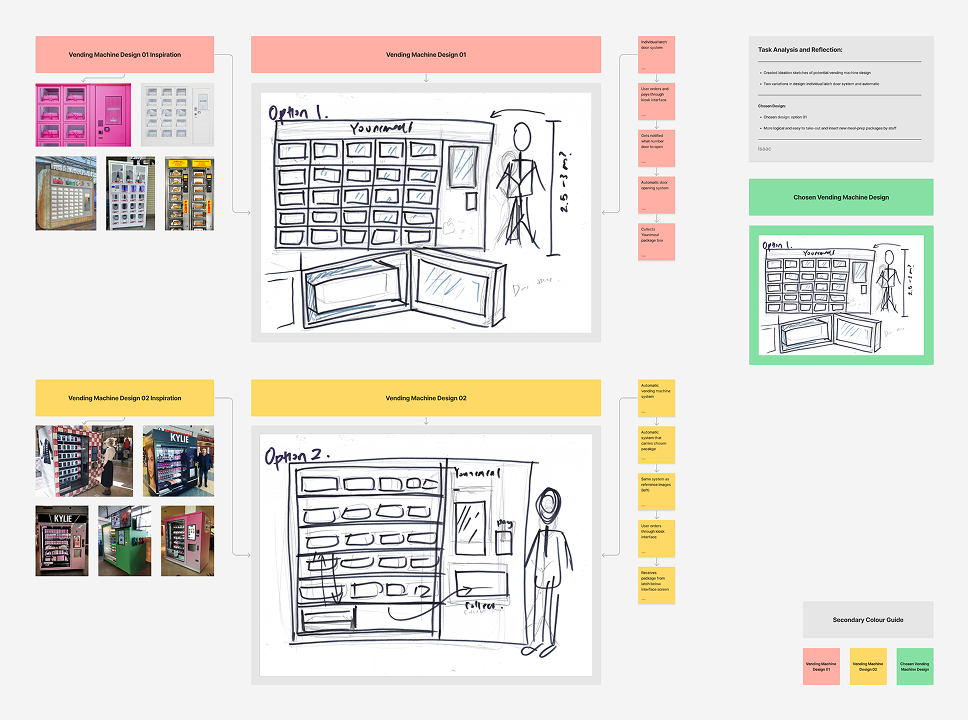
The design reduces constant reliance on staff by offering fresh, pre-made meal kits through a self-service kiosk, with restocking based on demand and no need for immediate transactions or in-store management.
To determine my idea’s feasibility, I visited university campuses to observe their physical environments. While there were a lack of suitable outdoor spaces, I found many unused indoor areas like hallways and open common spaces that could house the machines and make them easily scalable.
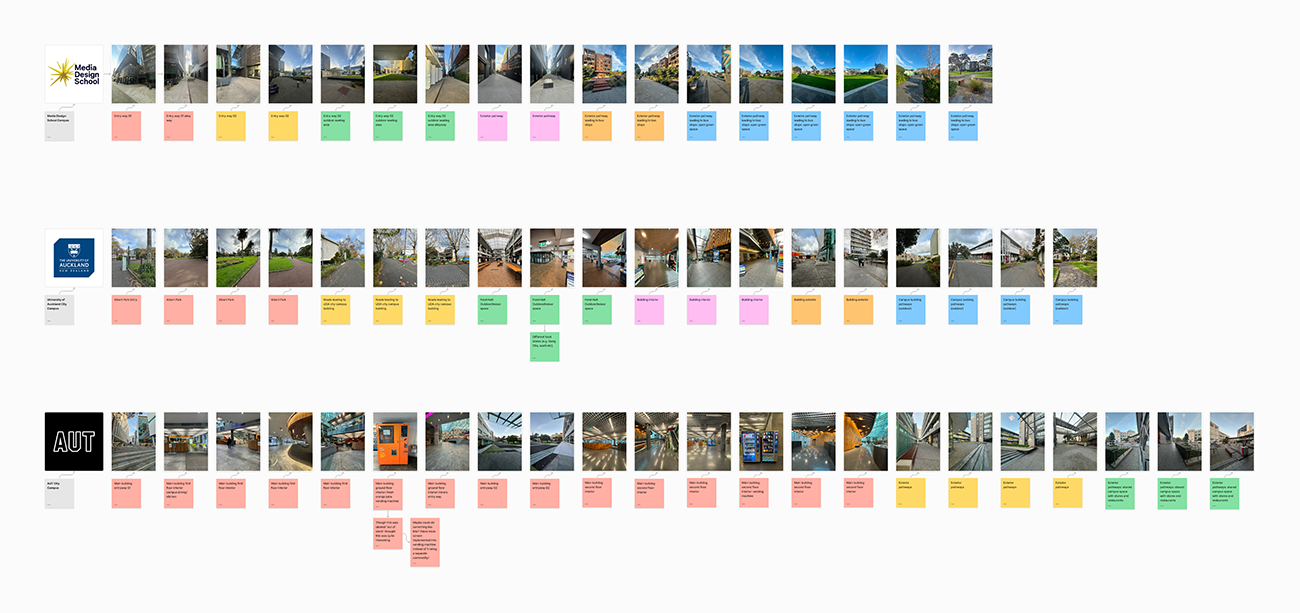
Having come up with the solution, I analysed competitors in the meal prep space, drawing from both professional and customer reviews to uncover strengths and weaknesses. This process helped me shape Younimeal’s unique value proposition to cover gaps and better serve student needs in an already saturated industry.


With a confirmed solution, I examined user flows from competitor meal prep apps as well as traditional food-ordering kiosk machines. This helped me identify key strengths to emulate in my designs, but also areas for improvement in creating a better experience for my users.

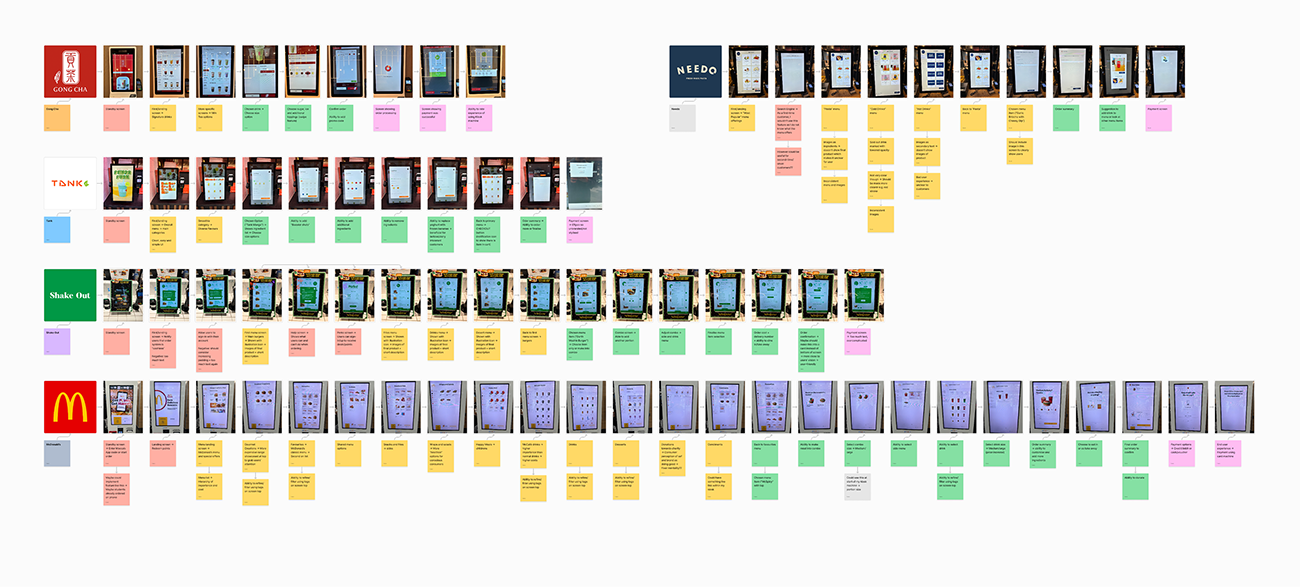

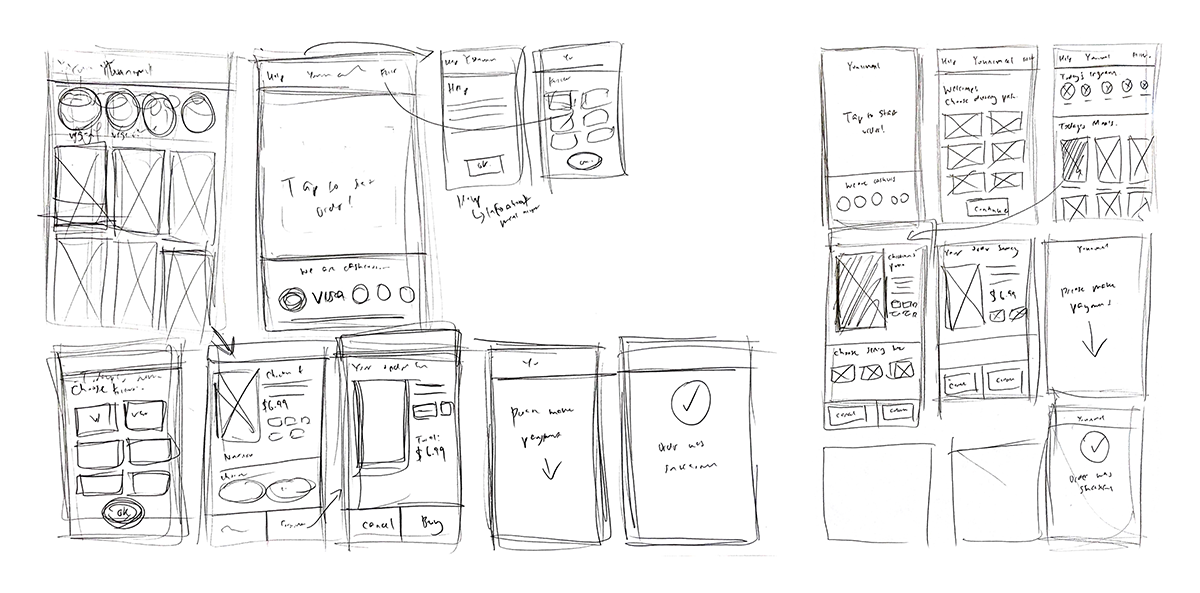
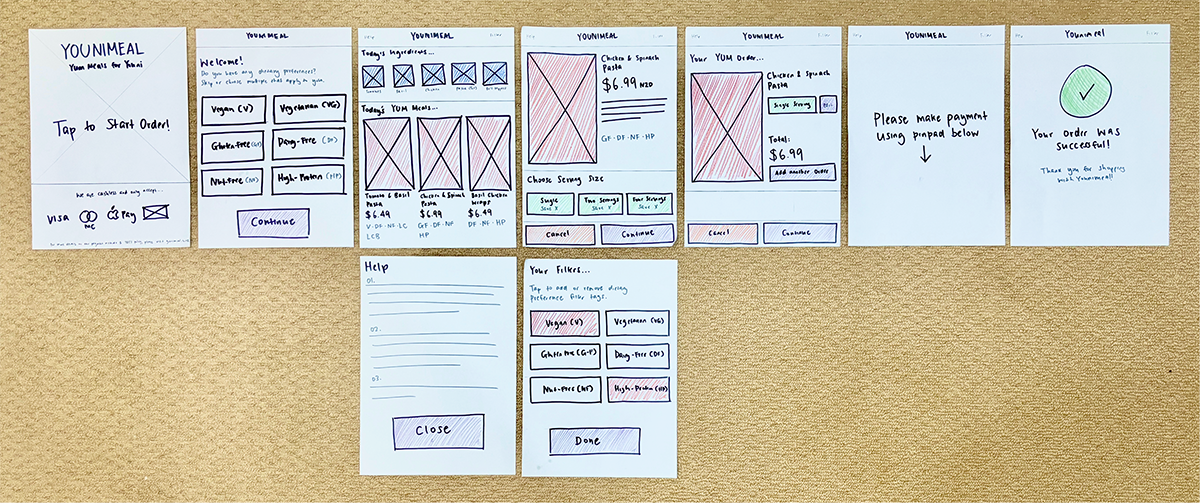
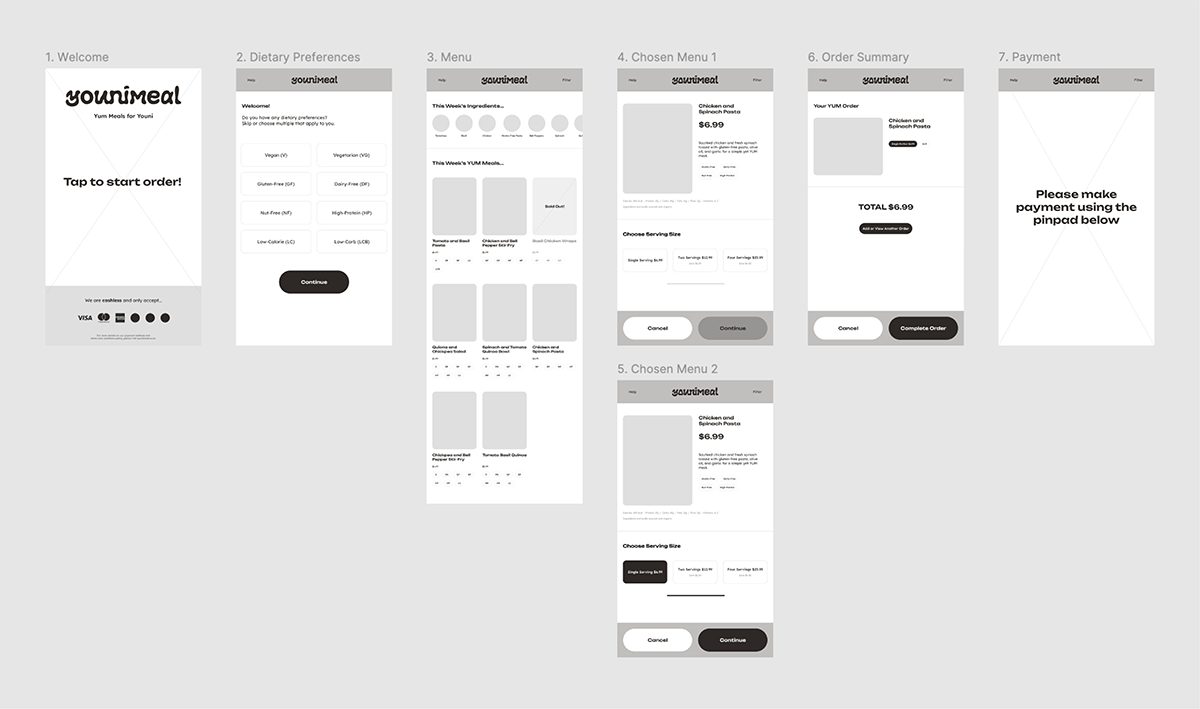
Across my lo-fi, mid-fi to hi-fi stages, I conducted three separate series of user test sessions with a total of five participants. While there were notable positives, I gauged insights into key issues and areas for improvement.




















Finally, I crafted Younimeal’s visual identity, including grid-based custom logos and illustrations that convey a warm and organic feel. I also selected Pantone colours that met accessibility standards and created a UI guide for the kiosk interface.


From the five participants I user tested, 4/5 said they would use this if launched! This indicates that there is strong interest and potential for my project :).
While I genuinely loved working on this project, there are definitely areas I could improve on:
While Younimeal definitely proves my growth as a product designer, I believe there is still much more I can do to push this project further.
If I had more time, I would love to explore...
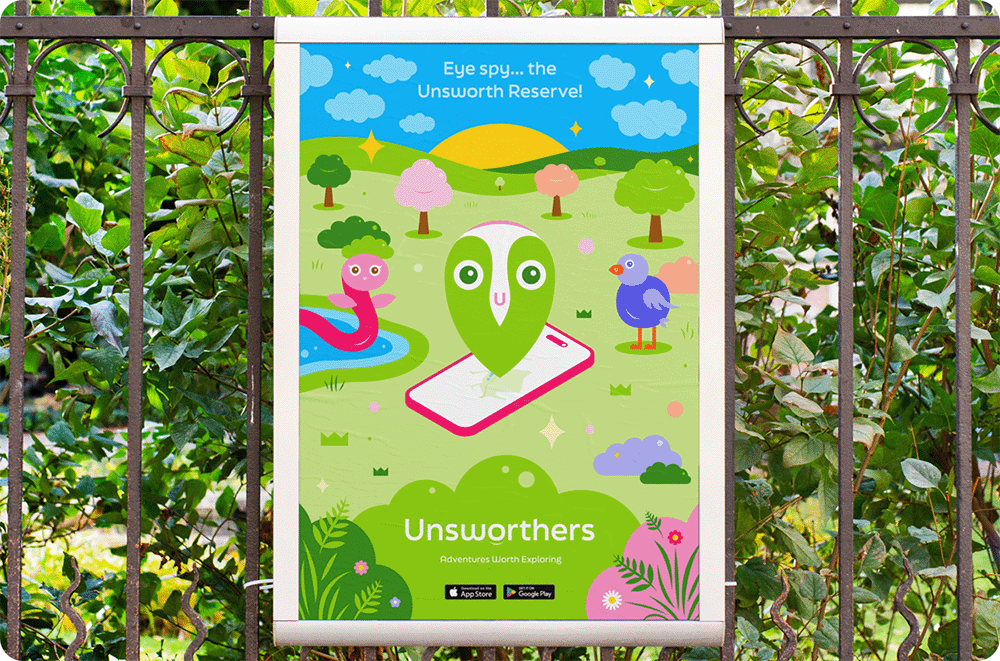
A digital-meets-outdoor adventure playground that encourages Kiwi tamariki to explore the natural world.
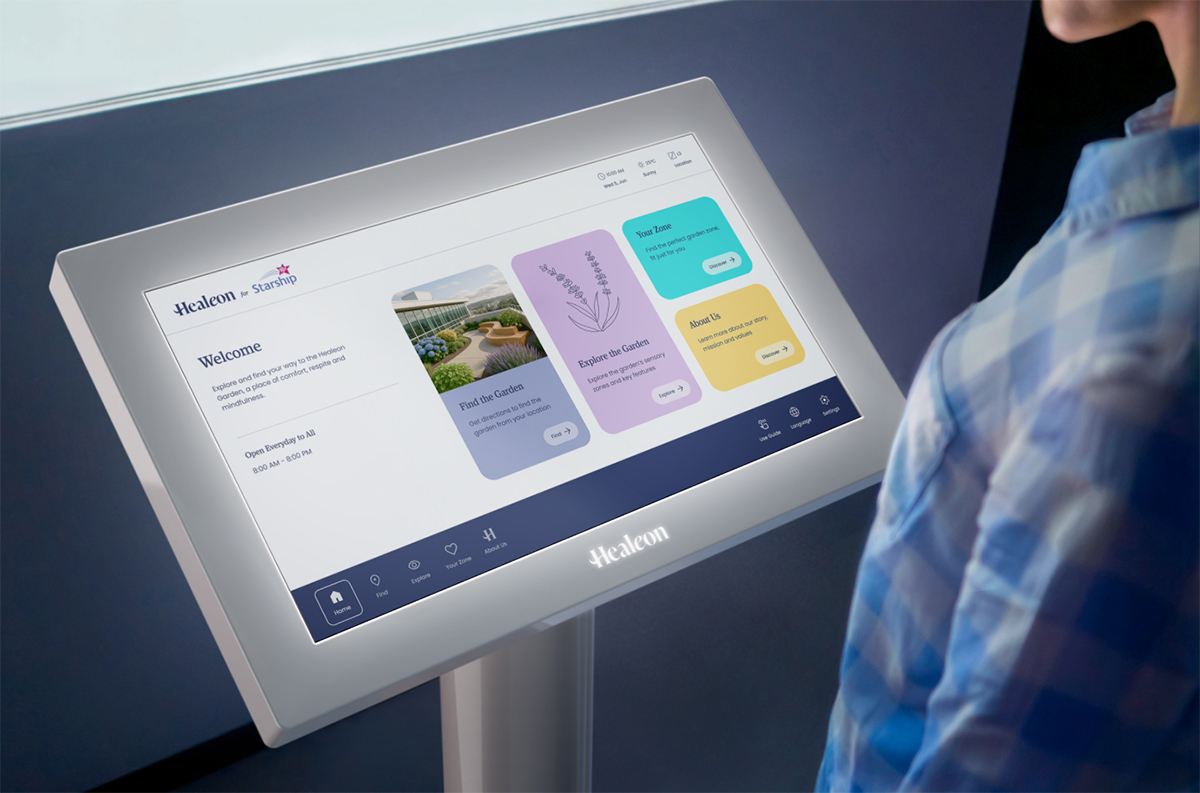
An intuitive way-finding system for an imaginative healing garden in Starship Children’s Hospital.